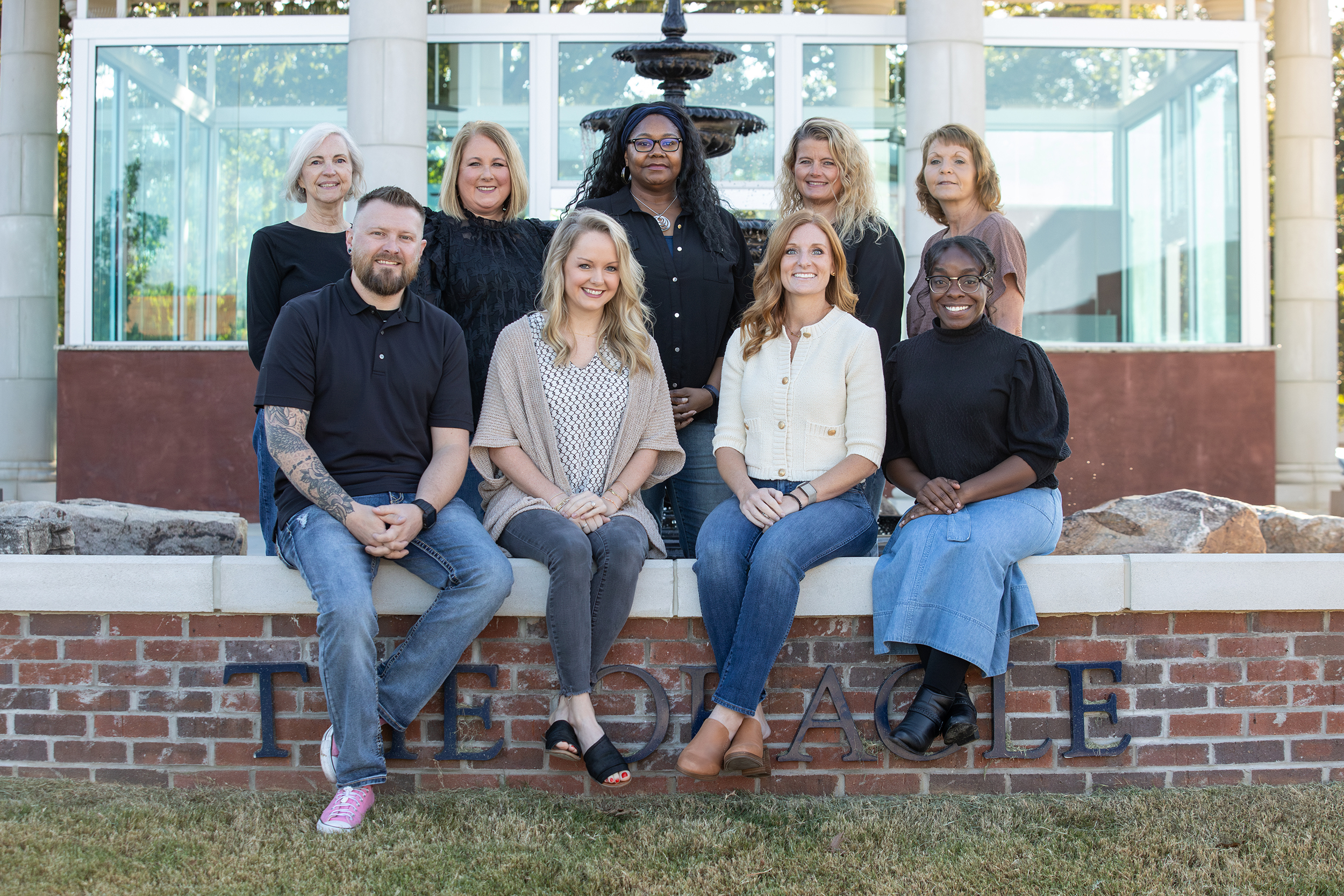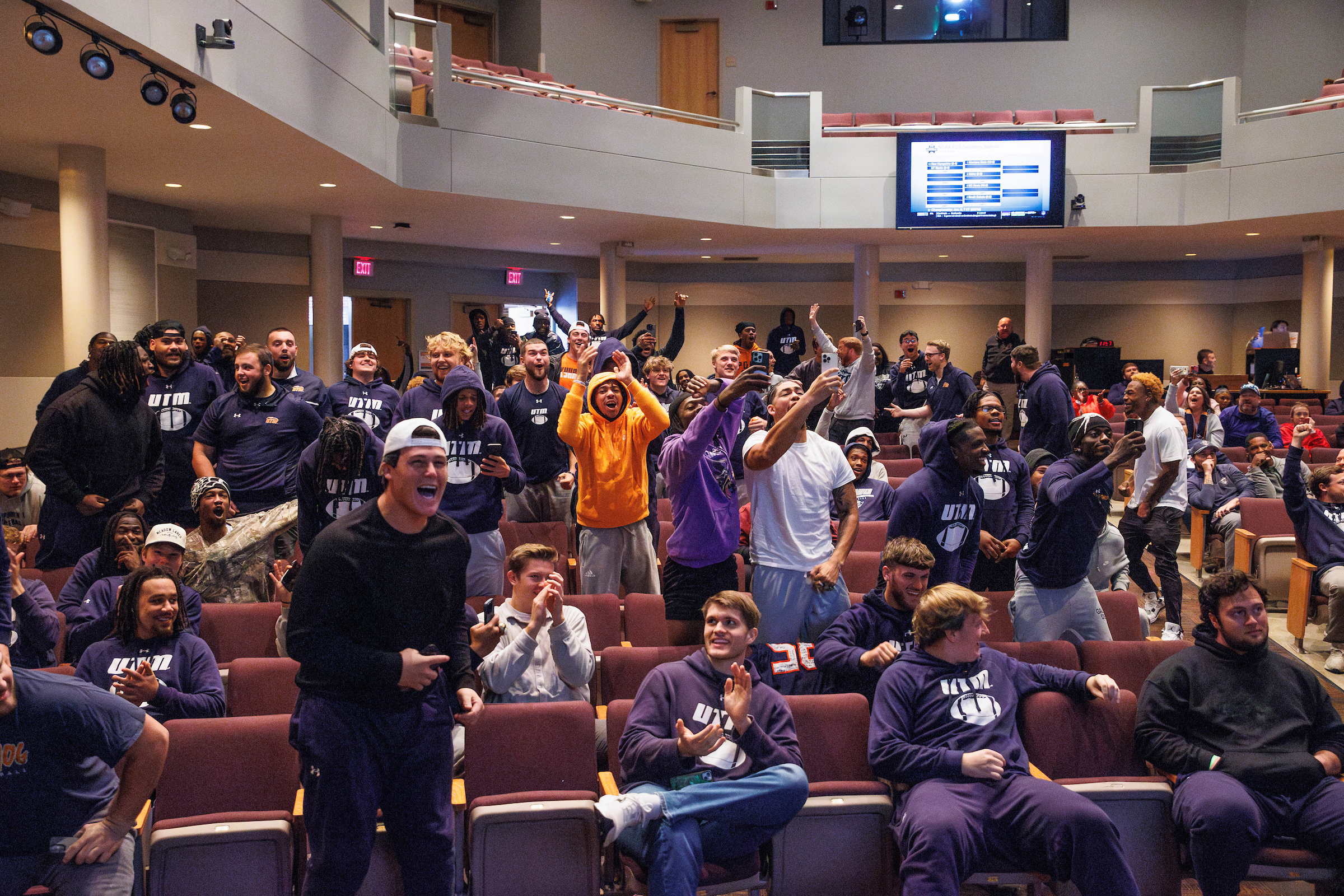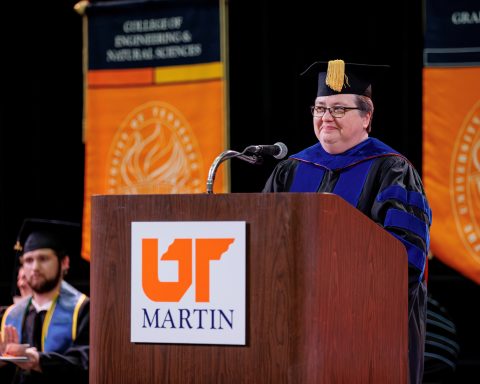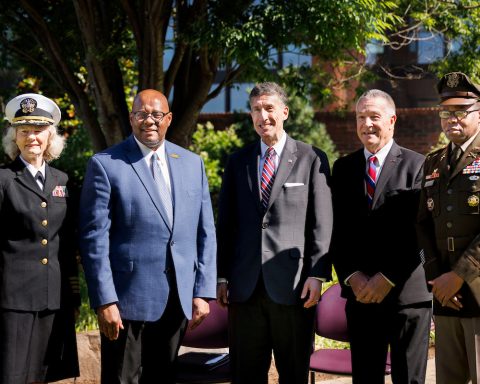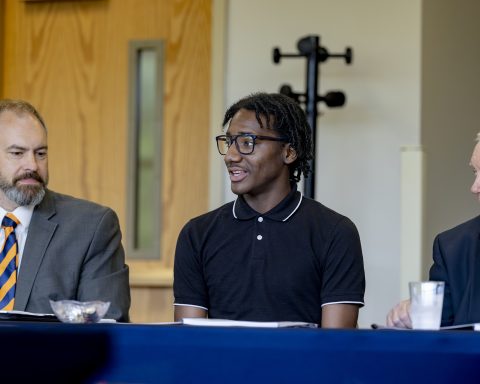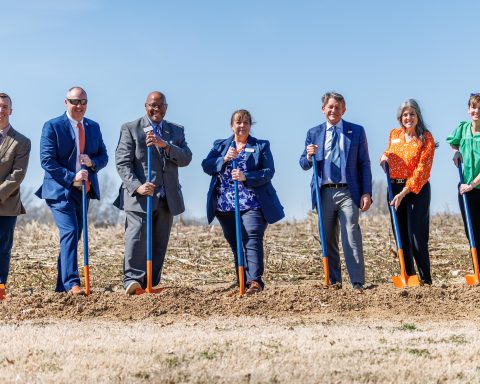Allison Castleman loves helping people stay healthy, both mentally and physically. The Greenfield native, 2011 UT Martin nursing graduate and nurse practitioner joined the university before the start of the 2024 fall semester from the Tennessee Department of Health to become the director of UT Martin’s Student Health and Counseling Services.
Her previous position included providing health services for Weakley and Carroll counties, so Castleman is prepared for the transition to caring for the university’s student population.
Castleman replaced longtime center director Shannon Deal, who left the university in 2023 when her husband, Dr. Charley Deal, was named vice chancellor of advancement for the UT Institute of Agriculture. Castleman sees her new role as a way to make a lifetime impact on her patients.
“As a health-care provider, my ultimate goal’s always been to care for patients, help them to be just the best version of themselves,” she said. “In Student Health and Counseling, I really have a unique opportunity to provide early intervention (for students) … and create meaningful impact on their health and well-being for the rest of their adult lives.”
Castleman has multiple health-care interests, many of which she explored and applied in her previous position with the Tennessee Department of Health. She sees these same experiences applying to her work with university students.
“I love preventative health care, reproductive health care, mental health,” she said. “My master’s is in nursing education, so I love to provide education and just taking a little time to have meaningful conversations with my students to get to know them and help them in whatever way that means.”
Education is a priority for Castleman who plans to be visible on campus as the Student Health and Counseling Services staff communicate and build relationships. As part of the university’s student affairs division, her top goal is to help students stay healthy so they can be successful academically.
“First and foremost, my biggest goal is awareness,” she said. “I want people to know that we’re here. I want to create meaningful relationships with our students, with faculty and with staff.
“I want to be the automatic referral when there’s a need that a student has that we can meet. I want to break down those barriers to care whatever they may be.”
Although still new to her position, Castleman has quickly assessed existing resources and what student health needs to accomplish to support a growing enrollment, which could expand significantly with Chancellor Yancy Freeman’s goal to grow to 10,000 students by 2030. Needs include assuring that students have timely access to physical and mental care and continuing partnerships with community organizations. Telehealth services for after-hours care are also possible.
“We also hope to eventually have a new location that might be a little bit easier for students to access and also space to expand our services. We’re a little bit limited where we are currently,” she said. “Of course, whatever the future holds, break down those barriers to care and get the students the care that they need to be academically successful.”
Immediate help to address growing mental health needs is on the way in the form of a grant announced earlier this fall by the U.S. Department of Health and Human Services Substance Abuse and Mental Health Services Administration. Called the “Promoting the Integration of Primary and Behavioral Healthcare Grant,” this will involve a partnership with the Tennessee Department of Mental Health and Substance Abuse Services. The program focuses on integrating behavioral health services with the university’s Student Health and Counseling Services and will provide personnel to work with the current staff.
Speaking of staff, Castleman sees her current team and the addition of a new case manager as strengths to build on in a growing student body.
“We have a really good staff. We have a lot of experience on our campus currently,” she said. “Our nurse practitioner’s been there a long time. Our counselors have been there for a long time.
“We have a phenomenal case manager (newly-hired Brandon Keller) who’s doing really great work. … They know what they’re doing. They care about their patients, and they have great resources, and I’m excited.”
Castleman’s goal to create awareness doesn’t stop with the student body. She wants families to know that their students are in good hands when they come to UT Martin.
“For both our students and our families, I want them to know that we’re here,” she said. “I want them to know that we care and that we’re the experts on college health and what the needs of our students may be.
“We’re a resource, whether that’s for physical health, mental health – and I want them to know that we’re here and to utilize us and whatever we can do to help them be healthy and well and, again, academically successful at the end of the day. That’s why students come to campus.” Learn more about UT Martin’s Student Health and Counseling Services at 731-881-7750 or email shcs@utm.edu. Staff are also available to talk with prospective students and their families during UT Martin events such as Preview Days and Summer Orientation and Registration
PHOTO: Allison Castleman (seated, second from right) joined UT Martin before the start of the fall 2024 semester as the new director of UT Martin’s Student Health and Counseling Services. She leads the university’s student-health team that includes (standing, l-r) Jenny Harrison, administrative assistant; Stefanie Gray, nurse practitioner; Stephanie Hayslett, counselor; Patricia Floyd, licensed practical nurse; Karen Miles, counselor; and (seated, l-r) Brandon Keller, clinical case manager; Jordan Gardner, administrative specialist; Castleman; and John’Na Webster, health and wellness educator.

